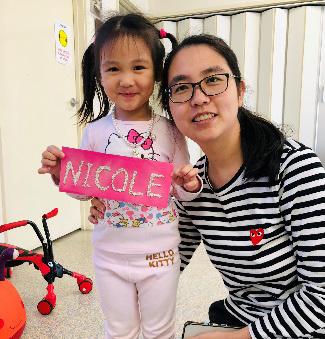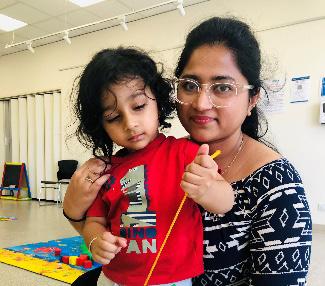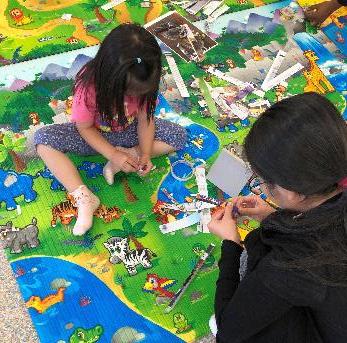
7 minute read
Mental Health Research – African and Indigenous Population
Over the years the SA Government has amplified its efforts to develop and implement mental health policies to protect and promote the mental wellbeing of South Australians.
Treatment for mental disorders has improved substantially over the past decade and many in the mainstream society have benefited from this. However, people from migrant communities and the indigenous population still need some catching up to do when it comes to dealing with mental health disorders.
References to mental illness can be found throughout history. For some communities in the CALD sector and indigenous population mental health is associated with superstition and cultural beliefs.
The MCCSA is currently supporting Kudzai Nyamande, a University of Adelaide student, with his PHD research into the relationship between stigma and the low utilization of mental health services by the African and indigenous population in South Australia.
A skilled migrant from Zimbabwe Kudzai came to Australia from the UK in 2011. We spoke with Kudzai about his research and what’s motivating him to pursue mental health study. Kudzai is currently doing a PHD in Mental Health at University of Adelaide while working part-time at the University and doing part time counselling work at Beyond Blue. Previously he also worked with the Flying Doctors flying to remote communities to provide medical support. Kudzai's interest in his research was spurred on by his work in the Northern Territory with the indigenous community where he noticed similarities in the way they perceived mental health with the African community. He said there were so many similarities in the culture, the way of life, the family system, the kinship system and the totem system of both the African and indigenous population. “Everything is similar, even the perception of mental health was similar, the stigma issues about ancestral spirits, about superstitions, witchcraft its all so similar so I thought let me see how I can help the population regarding mental health”. According to Kudzai there is a currently a low utilization of mental health services by these two communities and this is in stark contrast with the high levels of mental health issues in those two community groups. Below is an excerpt from Kudzai on his research.
‘The debate about mental illness and stigma has been going on for a long time and it is important to understand where the issue of stigma originated from. There are some who believe mental illness is not a real illness and it is people seeking attention or just a behavioural issue.
People suffering with mental illness face difficulties dealing with the symptoms of mental illness and also prejudice from the public including their own families who are supposed to care for them (Colthran 2012). For centuries, mental illness has been associated with spirituality in all communities. In Ancient times, Spiritualism dominated any sort of scientific reasoning, demons or bad spirits were thought of as causing the unusual behaviours of mental illness.
This research will be a partnership process involving dialogue between people with different perspectives. The sample will consist of 6 people from African communities with mental illness, 6 people from indigenous communities with mental health issues; three mental health nurses/allied workers each from target population working with target group and 2 senior figures in the community working at Policy level with target groups. This study will draw on Indigenous decolonising methodologies using collaborative, culturally responsive research methods and a constructivist grounded theory approach. The African community will draw on the concept of Ubuntu as an ontological approach. This research project will be relevant as it will be able to facilitate further discussions around stigma in mental health, influence policies in working with these target communities to improve service utilisation, enable early treatment approaches, reduce suicide rates and improve quality of care for the communities.’
For more information on this piece of work, please contact Kudzai Nyamande by emailing nyamandek@hotmail.com
MCCSA Multicultural playgroup term 1 in 2021
By Abby Liu
MCCSA was happy to reopen our Multicultural playgroup in February after it’s suspension due to the COVID-19 pandemic in 2020.
This playgroup has a playgroup coordinator and several playgroup volunteers and a wonderful variety of toys for children aged 0 to 5 years. Playgroups give children the opportunity to play with each other, learn crucial social skills and learn some simple rules. The parents or carers who come with their children have a chance to communicate with other parents and share their experience and information. MCCSA volunteers follow the Guidelines of COVID Safe Playgroup and clean all toys at the end of each playgroup session as well as paying more attention on maintain environmental hygiene. 16 families participated in this year’s term 1 playgroup. Children from these families spoke Dari, French, Hindi, Mandarin and Cantonese. In this term, we had a focus on different crafts and undertook activities such as making children’s name cards with fine egg shells, special wooden clips, as well as Easter bunny gift bags. We had very positive feedback from some mums attending the playgroup saying that they enjoy the playgroup as it gives them a chance to relax and chat with friends. The parents get involved in the arts and crafts as well.
At the end of this term, we held the first birthday party celebration with all our participants for 3 children Isabell, Hrida, and Nicole. We provided plate-painting and planting for children. All parents prepared different foods to share in the party. We had a great fun time together. The playgroup provides a suitable and safe environment for children to play as well as a chance for Mums (and Dads or carers) to connect to the multicultural community and make new friends. We look forward to seeing you in the playgroup for a joyful time. If you would like more information or want to attend with your child, please contact the playgroup coordinator Abby Liu on abby.liu@mccsa.org. au, or program coordinator Lena Gasparyan on 8213 4606 or lena. gasparyan@mccsa.org.au. Mothers, fathers or carers are welcome to attend with children from culturally and linguistically diverse backgrounds.



Importance of vaccination - Health and Immunisation Management Services (HAIMS)
Fortunately, in Australia a strong majority of our community support vaccination.
We appreciate the benefits every day in Australia, free of the devastating effects of widespread Polio, Measles and Diphtheria to mention a few, and where we are witnessing a remarkable decreases in cancers caused by Vaccine Preventable Diseases (VPD) since the introduction of Hepatitis B and Human Papilloma Virus vaccines. When we have high vaccination rates, diseases are less likely to spread from person to person. This is referred to as “herd” immunity and offers valuable protection to those in our communities unable to be vaccinated, the very old, and the very young. It also is protecting future generations. In the past, people witnessed the suffering VPD had on loved ones, so the benefit of vaccination was obvious.
Now that our disease burden is low, some people may question the continuing relevance and value of vaccination. If we let our guard down believing these diseases no longer pose a threat, we will witness the reemergence of disease and the cruel consequences on our communities. This was the case for a community in the Netherlands in 1992-1993 who chose not to vaccinate and where polio resurfaced. Seventy-one people were involved, and none were vaccinated. Two died and 59 suffered paralysis. They were aged between 10 days and 61 years. As with Polio the risk of complications associated with all these diseases can be serious and long term. Invasive meningococcal disease has the ability to leave victims permanently scarred or as amputees. Chickenpox can lead to serious bacterial infections of the skin, lungs and brain. Measles can lead to serious lung infection, brain damage and death.
We can be confident that the vaccines used in Australia undergo rigorous testing and regulation before being granted a license and are monitored closely after release for any safety signals. https://www.tga. gov.au/ ; https://www.ausvaxsafety. org.au/ It is important to remember when researching information about vaccines, that reputable sources are used, seeking out well referenced scientific articles and websites, as well as referring to your doctor or specialist. Know the FACTS. https://www.ncirs.org.au/ourwork/sharing-knowledge-aboutimmunisation
Christine Benger RN Champion Nurse Immunisation Program coordinator





